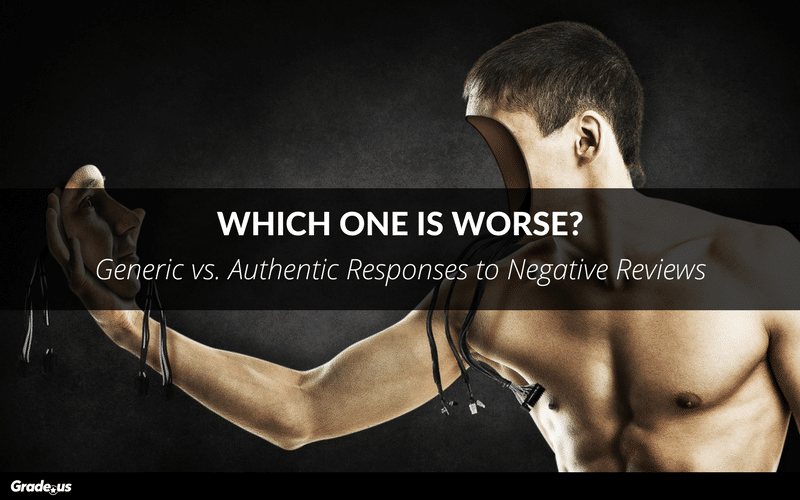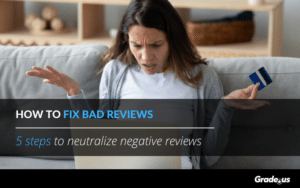Your service didn’t deliver as promised. You guys let me down. Again.
We’re sorry you had an unpleasant experience. Please send a message to support and we’ll be happy to help.
What’s wrong with this picture?
A customer service rep has offered a canned response to a unique customer problem. His response reads like a form letter. He was polite enough, so why are customers on the receiving end of this so angry?
We’re upset because we know he doesn’t care
Not even a little bit.
As customers, we know these support reps don’t actually care about our problems. They’re not sorry and they don’t empathize with us. It’s not their mistake after all. They’re just on clean-up duty. And let’s be honest, many of these “support reps” have just one job to do.
Get you off social media and out of the public eye.
Kind of like this:
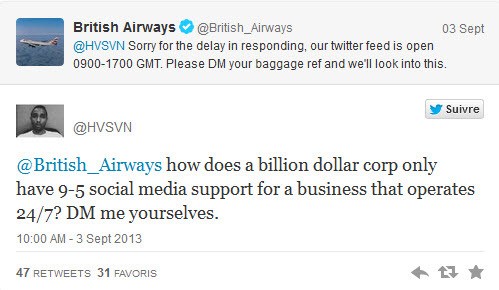
They don’t want other customers seeing how they handle the problem. They especially don’t want things to spiral out of control if things fall apart.
And you know what? That makes sense.
What doesn’t make sense is the generic/canned response. Does this mean you can’t or shouldn’t use canned responses to speed up support?
Absolutely not.
Customer service reps face a deluge of demands on a daily basis. It’s incredibly difficult to keep up with customer demands, especially during a crisis.
Canned responses aren’t the problem.
The problem is timing – namely knowing when to use canned responses and when not to.
Here’s the thing.
Your response should always be authentic.
What do I mean by “Authentic?”
Anything your organization communicates to customers – your origins, beliefs, intentions, devotion, sincerity – anything, is communicated truthfully.
Receiving a generic response stings a bit
It’s insulting. A generic response says I’m not willing to engage with you on this, much less tell you the truth.
A generic response incites anger, because it’s dismissive and invalidating. It screams I don’t care to customers, while pretending to care.
How do you respond authentically? What makes an authentic response so different? Authentic responses are…
1. Responsible.
Yelp reviewer Anna L. gave the Samovar Tea Lounge in San Francisco a one star review.
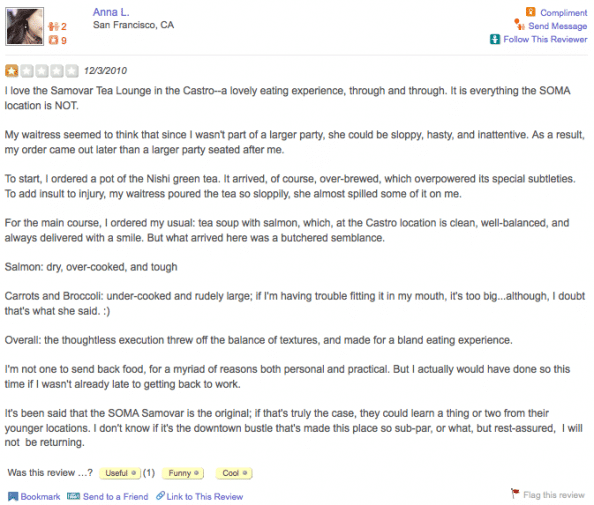
Anna was harsh in her review but she made some valid points. Here’s how Jesse at Samovar responded.
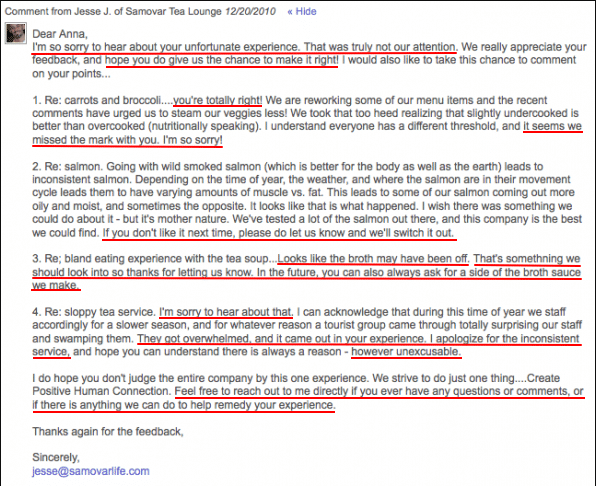
Jesse didn’t criticize, stonewall or belittle Anna (though she didn’t extend the same courtesy to Samovar). He didn’t approach her with defensiveness or contempt. He took the time instead to take responsibility for any mistakes and educated her on the reasons behind her complaints.
When customers are misguided or unhappy, when they have a legitimate complaint, authentic responders own their role in the situation. Good support reps own the problem publicly, doing everything they can to find and fix the problem.
2. Validating.
Reviews don’t always come through the usual channels. Sometimes the reviews we receive are unexpected and non-traditional. Just ask Sainsbury’s.
Three year old Lily Robinson wrote a letter to the grocery store chain asking why their bread was called tiger bread when it looked more like a giraffe.
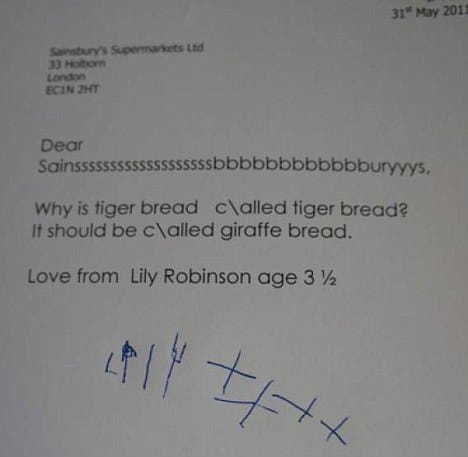
She’s got a point.

Sainsbury’s could have sent a generic, canned response to their little fan. Chris King, a manager at Sainsbury’s, took the authentic route instead, sending a personalized response (with the appropriate tone) to Lily.
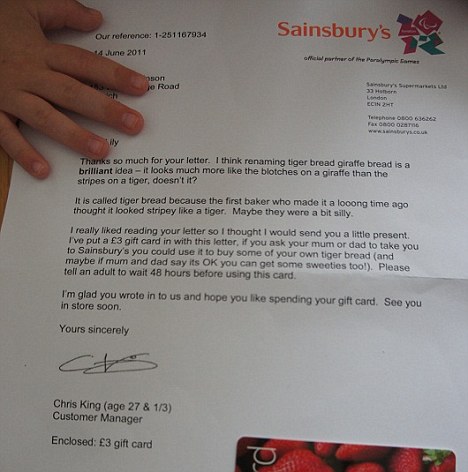
His response was validating to more than 140,000 Sainsbury’s customers, as they petitioned Sainsbury’s to change tiger bread to giraffe bread.
Sainsbury’s gave customers more validation when they listened, changing the name of their tiger bread to giraffe bread.
3. Empathetic.
I’ve used this example before but it’s still worth repeating. One of the hardest things to do with a negative review is respond with empathy. It’s incredibly tough to (a.) stay calm in the face of an attack on your character (b.) provide empathy to customers when they don’t deserve it and (c.) serve the very same customer that attacked you.
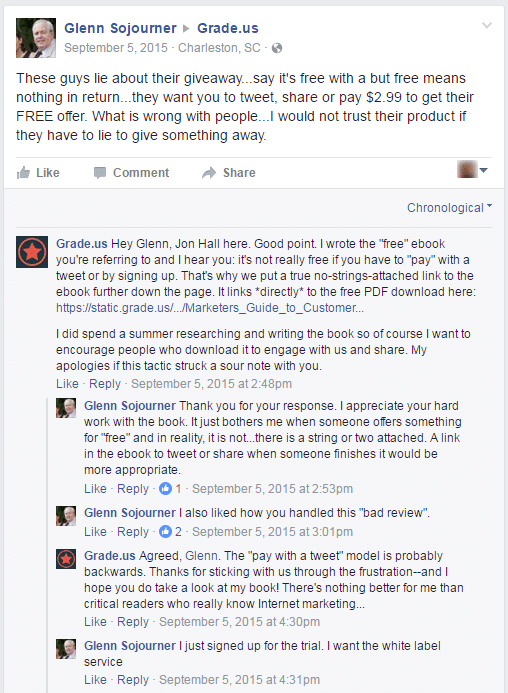
This prospect came out guns blazing. He didn’t respond with a question, he immediately attacked stating publicly that “These guys lie about their giveaway.”
This is the part where most responders take the bait and fight back, inflaming the situation.
Check out the words Jon used to defuse the situation and win a customer.
- Good point
- My apologies if this tactic struck a sour note with you
- Agreed…
- Thanks for sticking with us through the frustration
- Nothing better for me than critical readers who know internet marketing…
This situation could have gotten out of hand quickly. Jon did a masterful job, displaying empathy in a situation where his reputation and honor were immediately under attack.
Compare and contrast his response with this:
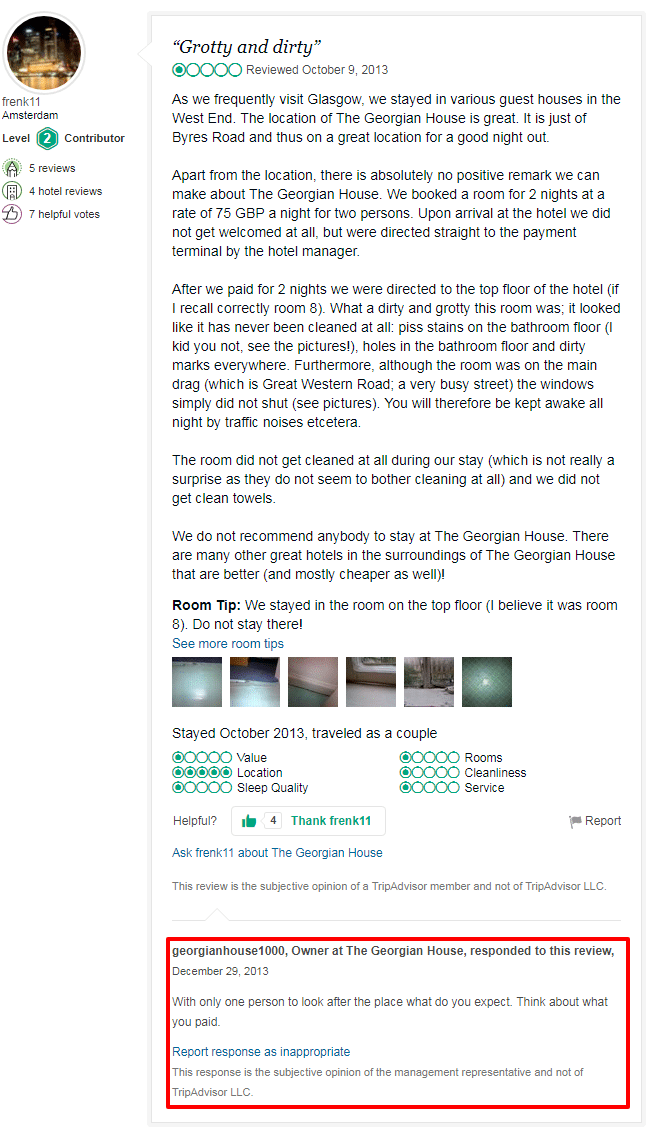
4. Attentive.
David Willis visited a Waterstones book store in London. When he was ready to leave he ran into a problem. He couldn’t. He was locked inside the store.
Hi @Waterstones I've been locked inside of your Trafalgar Square bookstore for 2 hours now. Please let me out.
— David Willis (@DWill_) October 16, 2014
Customers frantically tweeted to Waterstones begging for David to be released, with many asking to be locked in.
Waterstones responded quickly, adding a little bit of humor to a tense situation.
We're pleased to announce that @DWill_ is a free man once more. Thanks for your concern and tweets!
— Waterstones (@Waterstones) October 16, 2014
They took things a bit further, inviting guests to their book store for a sleepover after the whole debacle. What would have happened if they decided to ignore customers for a day?
Being authentic doesn’t matter as much…
As having a good product, great prices or prompt delivery. That’s the rationale many businesses make when a negative review comes in. They brush off their negative reviews thinking that sales solves everything.
It doesn’t.
Taking care of customers, responding appropriately, authentically to unhappy customers – these attributes matter more.
But why?
It’s not like you’re friends with each and every customer you have. Why should you spend the time being authentic?
Because it ruins your customers.
It ruins them for the competition. Believe it or not, many customers have lost sight of what it means to be treated well. As customers, most of us have grown accustomed to casual abuse. A casual search on Google turns up some of the following stories:
· Comcast steals $6,300 from a customer who forgot a decimal point
· Wells Fargo overcharges small businesses to process credit card transactions
· Customer is told her dead husband has to cancel service
· Family Switches To Sprint To Get Bill Cut In Half, Ends Up With Bill For $3,800
Giving your customers the care, guidance and protection they need means you’re also being authentic. Doing this shows them they can expect better from you.
It ruins customers, showing them they won’t get what you offer anywhere else.
You need generic responses though
I mean come on. A generic response is better than no response, am I right?
Not at all.
As we’ve seen, a generic response accomplishes one thing. It shows customers you don’t care. You don’t care to put enough thought, effort or time into your response to them.
Don’t misunderstand.
A canned response doesn’t have to be generic.
But a generic response shows you’re unwilling to do the work needed to take care of your customers. When a customer writes a negative review, it’s an invitation, an opportunity for you to show you care, to make things right in the relationship.
A generic response is a rejection.
Rejection hurts. It provokes feelings of anger, frustration and fear. It encourages revenge under the right circumstances.
Customers are upset when they see we don’t care
As customers, we know these support reps don’t actually care about our problems. It’s not their problem after all. They’re just on clean-up duty.
An authentic response changes everything.
Most companies talk about their values. Customers roll their eyes as these companies drone on about their mission statement.
You can be authentic. You can respond to customers in an authentic way. You can show them the care, guidance and protection they need. When you respond authentically under fire you embody your values.
Respond with authenticity and you’ll discover customers believe in you because you show that you care.
About the Author
Andrew McDermott
Andrew McDermott is the co-founder of HooktoWin. He shows entrepreneurs how to attract and win new customers.

